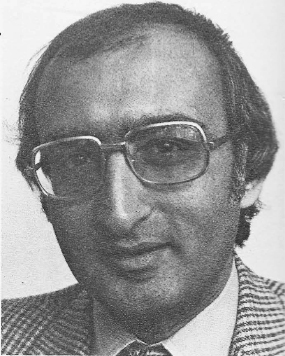
I am impressed by the modest claim of some television executives that British cinema is alive and doing well in television. Why stop there? What about British politics, education, sport, music and darts?
Fewer and fewer people go to the cinema, with long intervals between visits for those who do; and the shared and complex emotions associated with the experience of a film in the cinema fade or are forgotten altogether. So it becomes difficult to resist the assertion by some critics, who should know better, and television executives, who are flattered to believe it, that a film is a film, no matter where it is seen, that an audio-visual medium is an audio-visual medium. It seems enough for some that the two media use pictures and sound to insist that there is no difference between them. Journalism and literature use words — are they therefore the same kind of writing? What is worrying is that some practitioners are now peddling the same arguments. The only and much repeated discovery by those who cross the line of any dissimilarity between films for the cinema and films for television is that TV needs more close-ups. Which makes Dreyer the first television director.
Dialogue between the two industries is difficult. To those who work in the film industry, television represents not only a great life-eater but an avaricious consumer of cinema films — at a cut price imposed by an all too powerful and smug industry. To television, those who support a separate identity for cinema films are snobbish, pedantic and reactionary. A fuller discussion will have to be left to another time, but, for the present, one simply asks whether there is not a failure of the film-makers’ judgment and imagination if they believe that a film seen in the abstract dark of the cinema, where the image is larger than life, the sound fuller and more enveloping, where a crackling piece of paper is an unendurable invasion, requires the same subject and form as a film seen at home in the context of everyday life, where a ringing telephone, children, cats, dogs, passing traffic and interruption by commercials can be tolerated and accepted; or, from another perspective, that one speaks to hundreds and thousands about exactly the same things and in exactly the same way as one would to a few.
In 1982 the film industry’s net foreign earnings were £76m, the television industry’s £2m; investment in the film industry was around £40–50m, in the television industry anything between £1,500–2,000m. A closer study of the way the two industries operate will make it clear that the disparity is inevitable.
To justify the licence fee, the BBC has to attract a national audience; so must commercial television, whose paymasters, the advertisers, wish to sell their goods in the UK and not abroad, in Birmingham, West Midlands, not in Birmingham, Alabama. International sales provide the jam (until recently jam was also provided by the UK; foreign sales provided caviar). The film industry on the other hand is unlikely to recover the negative cost of a film in the UK. Not only does it have to sell its product abroad, but also it must, in the selection of projects, take into account long delays — maybe a matter of years — before a particular film is shown in foreign cinemas. Television films and programmes have to be topical; cinema films have to be more universal than timely. The commercial risks are also different: investment in television product is such that there is both a floor and a ceiling; with investment for the cinema you can lose everything or succeed beyond the dreams of avarice.
It must seem churlish to insist on the difference, when in the last twelve months television has given us two magnificent series, Boys from the Blackstuff and Jewel in the Crown, and when Channel 4 has backed fine individual films and has revived and sustained the independent sector of the British film industry. Of course there are fine film-makers working in television. The film industry has been in such trouble that it would be daft to expect film-makers to ignore the only secure financier available. However, to ensure that we have a flourishing and vital television service it is more important that there are gifted practitioners who know and intuit what television can do and cinema cannot. In insisting on the differences I am not making a value judgment that one is better than the other, although I am alarmed by the way that television in its entirety seems to substitute itself for life. The two media, both for the makers and for the audience, are tuned to different harmonics. Television is at its best dealing with concepts, explaining and describing (it is no accident that the drama documentary is the preferred form of television drama); cinema is at its best when it concerns itself with the ineffable, with that which cannot be expressed.
There is a battle going on between cinema, video, cable and television. Exploitation of a film in each medium is rapid and concentrated as the film is handed from one medium to another. Greatest revenue for a cinema film is now no longer necessarily derived from a theatrical release. It is this fact, I believe, which has led to the claim that we must consider film in a new way. To me that is simply confusion. Whereas a cinema film can be exploited by all media, a television film cannot. The hybrid film has, I believe, led to the emptying of cinemas. Loose talk of a marriage between cinemas and television is dangerous; a union has to be carefully arranged. Congress between two such unequal partners will mean the death of cinema.
Written by Mamoun Hassan whilst Managing Director of the National Film Finance Corporation (NFFC)
(Reproduced from Sight and Sound, Spring 1984)
